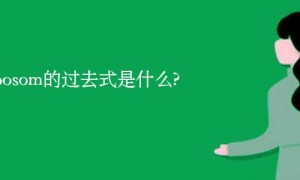so, accordingly, consequently, hence, then, therefore, thereupon, thus
这组词共同的意思是“因此; 所以; 于是”,它们的区别是:
1.so, then和thus是一般用词; accordingly, consequently, hence, therefore和thereupon是正式用词。
2.so和then常用于简洁的日常谈话,语义较轻,只表示因果关系或逻辑顺序,而不一定表示严格的推论关系。
3.accordingly, consequently, hence, therefore, thereupon和thus都表示因果关系。accordingly语气较缓和,常译为“于是”; consequently一般不强调因果间的必然联系,而只是根据逻辑推理得出的结果; hence表示合理的推断,指出原因及其必然结果,但更强调原因; therefore强调因果间的逻辑关系,多用于表示严密推理或精确论证的郑重场合,故常用在数学、逻辑学等领域; thereupon则指“作为…的结果”; thus的意思和hence, therefore相近,但更正式庄重。
4.accordingly常位于(分句)句首或句中; consequently, hence常位于(分句)句首; so只用于分句句首; then常用于分句句首,有时用于句末; therefore和thereupon常用于(分句)句首,有时用于句中; thus常用于(分句)句首。
5.consequently, hence, so, then, therefore和thereupon前有时可加and; accordingly前偶尔可加and; thus前一般不可加and。
6.hence常引导省略句; thus还可跟现在分词短语表示结果或目的。
so long, bye-bye, cheerio, farewell, goodbye
goodbye, farewell, so long, bye-bye和cheerio都有“再见”的意思。它们的区别是:
goodbye用于暂别的场合; cheerio常用于英国口语中,表示暂时的再见,有时也用在打招呼中; farewell用于亲友远行,在短时期内不能再见面,属正式用语; bye-bye是俗语,常为儿童所用; so long是非正式美式英语,多用在熟人或亲友之间,但英国人几乎不用。例如:
After talking for a moment, they said cheerio to each other.谈了一会儿,他们互道再见。
“Cheerio!You are here!”“好哇!你在这儿啊!”
“Bye-bye,Mum!”the boy said to his mother.“再见,妈妈!”孩子对母亲说道。
Farewell!I hope we'll meet again soon.再见!我希望我们很快能见面。
So long, everybody!各位再见!
so, such
so是副词,用来修饰形容词或其他副词, such是形容词,用来修饰名词(位于不定冠词a或an的前面); 在形容词+可数名词的单数短语前,既可用so,也可用such,但它们的词序不同; 如果形容词后面的名词是复数形式,一般情况下用such,不用so; no可以和such连用,而不和so连用。
accordingly,consequently,hence,so,therefore,thus
这些连接副词均有“因此,所以”之意。
accordingly书面用词,强调根据某种原因而得出的结果,其前可用冒号或分号,但不用逗号。
consequently正式用词,侧重符合逻辑的结果。
hence较正式用词,指接下来的东西是理所当然的必需的东西,但强调其重要性。
so用于比较随便的场合,口语中多用。
therefore通常指引出一个推断出的必然结论。
thus多用于书面语中,可与therefore换用。










